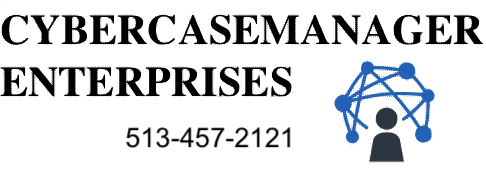Does Covid-induced remote working promote knowledge management?
I was asked last week whether Covid-induced remote working promotes KM. I don’t think it does yet; but the opportunity exists to make KM part of the New Normal.
 |
| Image from tradoc.army.mil |
Firstly let’s recognise what the response to Covid has delivered, namely a “burning platform” to drive digital transformation. Organisations under lockdown can no longer work the way they used to, with paper reports and face to face meetings. Suddenly remote working is the norm, as are shared files, and digital documents. Digital transformation is no longer an option but a neccessity, and this has short-circuited the need to drive behaviour change and adoption. Covid itself has driven adoption.
But does this mean that suddenly knowledge is being managed as never before?
I don’t think it does, or at least not yet. It offers new potentials for knowledge management, for sure, but remote working and digital transformation are not enough to deliver knowledge management. Let me explain what I mean.
An organisation that cares about an asset (and for the purposes of the Knowledge Management discussion, we will look on Knowledge as an asset) will talk about that asset. They will talk about knowledge, track knowledge, identify knowledge gaps, create new knowledge, combine knowledge into new solutions, and above all, will discuss it.
The bulk of the conversations I have seen online during the lockdown have been team conversations talking about work. Progress reporting, assignment of tasks, prioritisation etc. Very little about knowledge. I have heard of one online knowledge cafe, but no online peer assists or after action reviews. I am sure online knowledge-focused discussions have happened, but my impression is that these are rarer than before, not more common. In other words, the work delivery stream has been digitally transformed, but the knowledge delivery stream seems not to have benefitted, and potentially has suffered. People are working differently, but they still don’t seem to care much about the asset that is Knowledge.
The Covid-induced digital transformation holds the potential for enhanced KM, which then holds the potential to deliver more of the value that digital transformation makes possible. However we (the knowledge managers) still need to do some work!
- Now people are used to remote working, lets broaden the conversations. Let’s not just talk remotely about team progess, lets talk about lessons we have learned, what knowledge we need to build, what knowledge we need to gain.
- We can talk around the world now – so why just talk with your own team? Decide what knowledge you need, and find the people in the world who have that knowledge. Let’s talk with other teams, and share our lessons with them. Let’s learn their lessons in return. Digital transformation makes these conversations possible, but we have to make them happen.
- Let’s talk with (or form) the communities of practice. Once we know what knowledge is important, let’s find the poeple who are working with that knowledge, get together and share experiences. Compare solutions, build better practices.
- Now we are moving to digital documents, let’s think beyond the concept of project work and project deliverables. Let’s make sure we have a knowledge stream with knowledge deliverables as well.
- Let’s make sure the roles are in place to manage the knowledge work streams, and build and curate the collections of knowledge products. Now we have gone digital, these digital collections can add huge value, so long as the knowledge products are created, organised, synthesised, owned and managed. This takes resource, but adds huge value. Covid won’t make it happen, but Covid-driven digital transformation makes it far easier.
In many ways, Covid has handed Knowledge Management an opportunity, but the opportunity may well get lost under the pressure of “normal work”, for those organisations which do not see KM as part of “normal work”. Our work as knowledge managers is to change this perception, and harness the benefits that enforced digital transformation has offered.
If we can make KM part of the post-Covid “New Normal”, then the possibilities are endless.
Tags: Archive

Leave a Reply